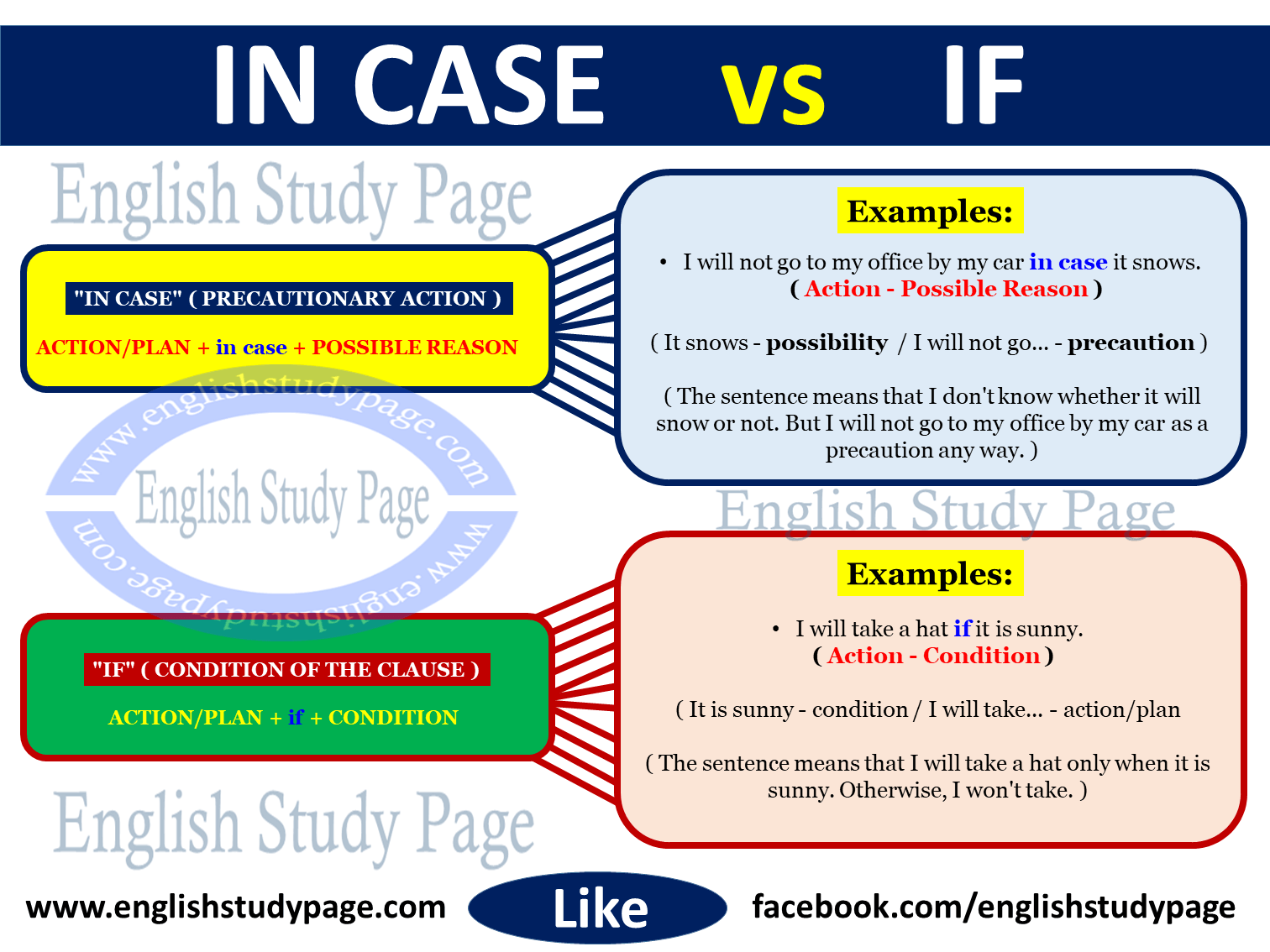
” IN CASE ” VS ” IF ”
” in case “ and ” if “, both of them, can be confused each other. Although we can see or use them in same sentences, they have different meanings.
Here you can find basic differences between them in terms of their uses and meanings.
You can see their uses and related examples below. ( Differences between ” in case ” and ” if ” )
1. “IN CASE” ( PRECAUTIONARY ACTION )
“in case” AS A CONJUNCTION ( ACTION/PLAN + in case + POSSIBLE REASON )
“in case” is used to talk about things we should do in order to be prepared for possible future situations.
Shortly , we can say that
- “in case” introduces “possibility”.
- We can use “in case” to represent the precautions taken due to the possibility.
- We should do an action before something happens or might happen.
You can see many examples related to using “in case” below;
Examples:
- I will not go to my office by my car in case it snows. ( Action – Possible Reason )
( It snows – possibility / I will not go… – precaution )
( The sentence means that I don’t know whether it will snow or not. But I will not go to my office by my car as a precaution any way. )
- My mother will put a cake in my handbag in case I am hungry. ( Action – Possible Reason )
( I was hungry – possibility / My mother put a cake… – precaution )
( The sentence means that we don’t know whether I will be hungry or not. But my mother will put a cake in my handbag as a precaution any way. )
- Her father always gives her some money in case she need it. ( Action – Possible Reason )
( She need it – possibility / Her father always gives her some money – precaution )
( The sentence means that they don’t know whether she will need it or not. But Her father gives her some money as a precaution any way. )
2. ” IF “
” if “ AS A CONDITIONAL ( ACTION/PLAN + if + CONDITION )
” if ” is used to express the condition of the clause.
Shortly , we can say that
- ” if “ introduces “condition”.
- We can use ” if “ to represent the actions happening due to the condition.
- We should do an action after something happens or might happen.
You can see many examples related to using “if” below;
Examples:
- I will take a hat if it is sunny. ( Action – Condition )
( It is sunny – condition / I will take… – action/plan )
( The sentence means that I will take a hat only when it is sunny. Otherwise, I won’t take. (xanax online india) )
- Call the fire department if there is a fire. ( Action – Condition )
( There is a fire – condition / Call the fire … – action/plan )
( The sentence means that call the fire department only when there is a fire. Otherwise, don’t call. )
- I will come back again if you need help. ( Action – Condition )
( you need help… – condition / I will come … – action/plan )
( The sentence means that I will come back only when you need help. Otherwise, I won’t come. )
For detailed information about using “in case” in English, click here
For Conditionals – Type 0, click here
For Conditionals – Type 1, click here
For Conditionals – Type 2, click here
For Conditionals – Type 3, click here
For Conditionals – Mixed Type, click here
